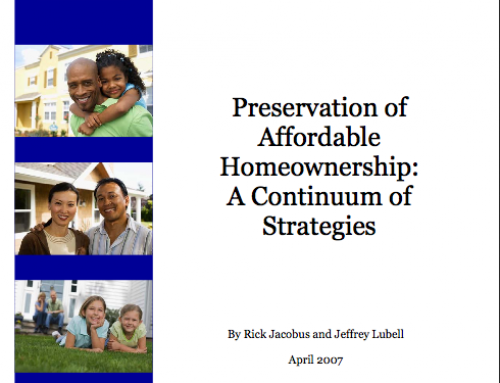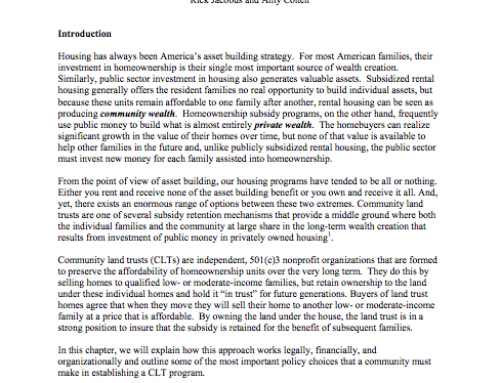Tuesday, September 1, 2009
By MICHAEL PERRAULT
The Press-Enterprise
Hemet officials may have a new tool next month to create affordable housing: a community land trust.
Community land trusts are nonprofit, community-based housing organizations that acquire land through purchases or donations and hold it in perpetuity, said Rick Jacobus, an Oakland-based consultant hired to look into forming the land.
The land is then leased to the homeowners for as long as 99 years, cutting the overall cost of homes and helping to promote affordable housing.
The trust could also work with lenders to reduce mortgage costs by using equity of the land as part of the mortgage calculation.
“By retaining ownership of the land, the city is sort of a silent partner,” Jacobus said.
Hemet could screen potential homebuyers and tenants while ensuring homes are adequately maintained and occupied by working families instead of being bought up by investors, Jacobus said.
Another option Hemet City Council may consider is joining forces with a non-profit affordable housing developer, said Adam Eliason, president of CivicStone, a Chino-based consulting firm that advises cities on how to develop affordable housing.
Eliason and Jacobus have been asked to work the city’s housing authority to develop a business plan to boost affordable housing options, stabilize blighted neighborhoods and reduce absentee ownership.
Hemet officials want to buy and fix up foreclosed properties and sell them to working families. The city plans to use nearly $3 million awarded by the U.S. Housing and Urban Development Department’s Neighborhood Stabilization Program, said Mark Trabing, Hemet housing manager.
Hemet has teamed up with Moreno Valley to apply for a second round of federal funding, Trabing said.
The city council teamed up in July with two nonprofit housing groups to improve their chances of receiving about $10 million in additional federal Neighborhood Stabilization grants.
Hemet is awaiting word whether it will receive about $3 million more to be used to purchase and renovate homes for resale, rent or redevelopment and to demolish blighted structures.
Hemet’s land trust would likely be governed by a board of directors representing people who lease the land, as well as surrounding neighbors, public officials, nonprofit housing providers and social services.
Land trusts have sprouted up in cities such as Madison, Wis., where teachers, police and other workers with modest, middle-class incomes were priced out of neighborhoods.
A land trust could give Hemet a chance to be involved on an ongoing basis, helping neighborhoods break out of “boom and bust cycles” that have left residents facing foreclosures.



